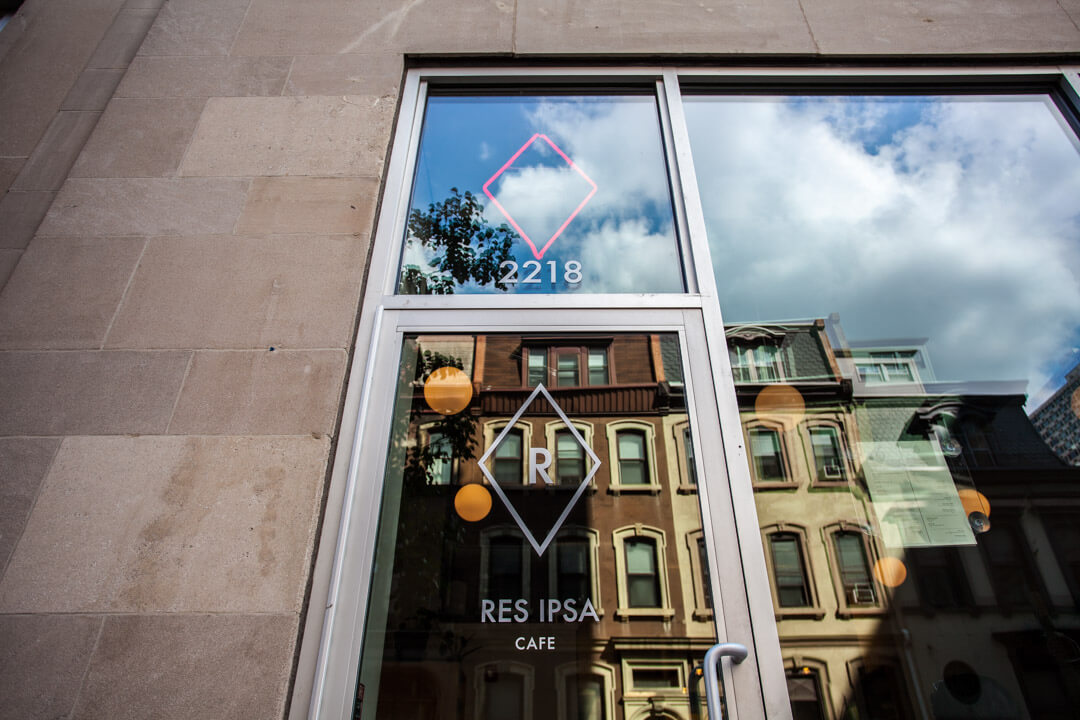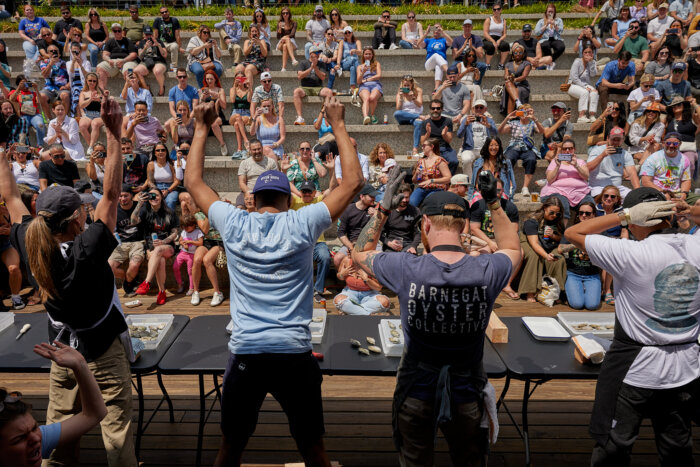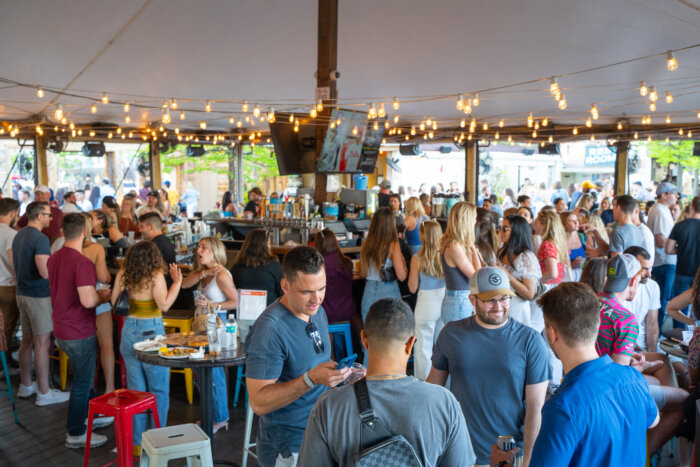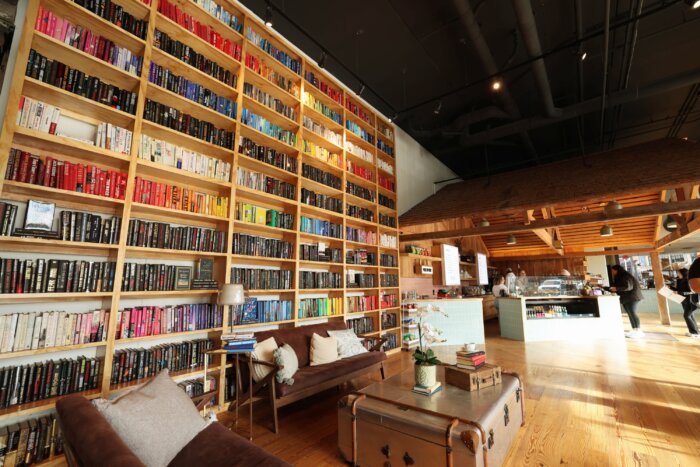The effects of COVID-19 have impacted virtually everyone in every industry, but the restaurant industry has certainly seen one of the more devastating hits from the current pandemic.
In just the United States alone, the food and beverage industry employed 10-12 million people, and a huge portion of those workers have been laid-off or furloughed after social distancing went into full effect with eateries closing down and reducing staff. Not to mention, many establishments that have been able to stay open have still seen extreme losses financially. The results of these unprecedented times in the food industry have caused stress, and in some cases permanent closures. In fact, according to a recent poll done by the James Beard Foundation, only 20% of independent restaurant owners believe that their establishments would survive the pandemic—and that’s why many major players in the Philadelphia food industry are asking for help, including chef Tyler Akin.
Akin has been around the city’s food scene for quite a while, spending years as the sous chef at Zahav and then shifting to opening the dual concept all-day cafe and Southern Italian eatery Res Ipsa, and both Stock locations in Fishtown and Rittenhouse Square.
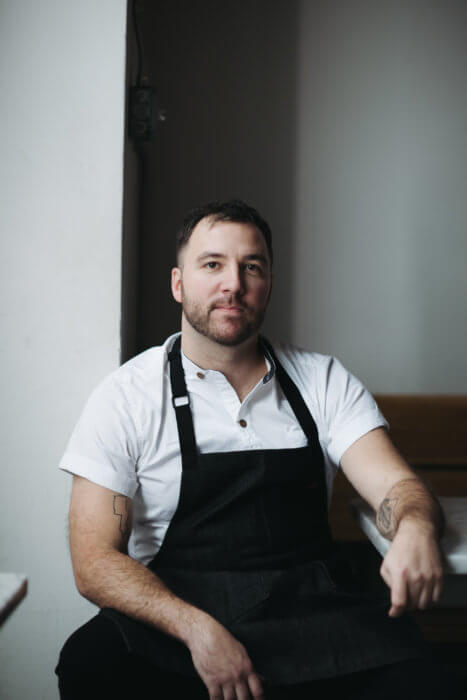
Akin’s latest venture, however, was supposed to be opening last week in his hometown of Wilmington, Delaware, at the historic Hotel Du Pont. For obvious reasons, that grand opening is on hold.
“We’re just figuring out what to do over there at this point,” says Akin. “In [this] situation we’re dealing with concerns over restaurants that are going, but also trying to figure out how to open a restaurant in this environment at the same time. At the end of the day, when we do have the opportunity to reopen or kind of expand beyond delivery and curb-side, it’s going to be sort of like opening all of them for the first time again to some extent. That’s another logistical challenge, being everywhere at once and just figuring out what works. It’s unprecedented times for sure, for us and for everyone else as well.”
To help maneuver these tricky times, Akin has certainly had his hand in many organizations that are trying to help save the industry including sitting on the board of the PRLA (Pennsylvania Restaurant & Lodging Association), which represents the interests of over 1,600 restaurants in the state and the IRC (Independent Restaurant Coalition) where he works with national leaders in our culinary community as well as DC lobbyists.
“PRLA by design is kind of oriented towards affecting policy at the state and municipal level. When this all started [we] immediately interacted with the commerce department to determine where things were headed [and] what kind of immediate relief could be granted for restaurants—whether it was tax filing extensions, tax holidays, and things like that,” says Akin. “With PRLA, it’s doing what we can do at this state and local level to mitigate tax expenses and get some concessions on topics like that. At the Federal level, which is really what the IRC is more designed to address, we’re seeking fixes to PPP (Paycheck Protection Program) which was a one-size-fits-all program. For all small businesses of any stripe that has frankly worked for a lot of industries [and] in the short term makes their business much more highly profitable and ensures that people don’t have to go through that arduous process of on-boarding with unemployment. But the program specifically does not work for us, and we created the majority of job losses in the last two months. It has strings attached that require us to hire our historical headcount, which obviously is not practical considering the volume of business going around in restaurants right now. It’s really an eight-week bandaid on what we see as an eighteen-month problem.”
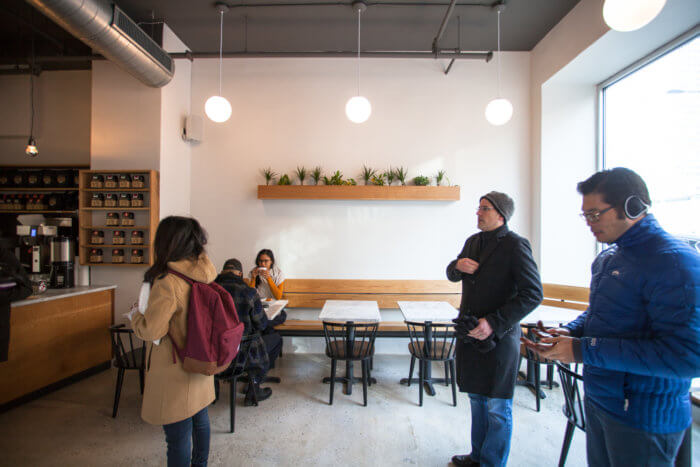
There have been a few ideas floating around that can help restaurants adapt to the current situation, including blocking off streets to allow eateries to seat and serve people outside. That ideology has been picking up speed around the country and the world, but in the City of Brotherly Love, it hasn’t quite taken hold. It’s been an arduous process, but the fight for help is worth it, even if it means starting from square one.
“Now, we’re back to the drawing board at the state level talking about what kind of guidance is sensible for reopening when that time comes, and I think that the balance is being safe and ensuring that our staff and guests are safe by complying with the guidance that’s being handed down by the CDC,” explains Akin. “[We’re] balancing that against just basic kind of commercial necessities. There are certain ideas of how a restaurant would reopen that simply won’t work—there are expenses associated with it, especially for PPE for guests or for employees and temperature checking of guests coming into the space that raises privacy concerns. It’s just a myriad of nuts and bolts kind of issues related to how we do this when the time comes.”
To help deal with these factors and to hopefully assist restaurants after this pandemic passes, Akin is in the process of forming a dedicated Philadelphia Hospitality Coalition.
“We formed a small core group to bring Philadelphia’s interests to the table at the national level with the IRC. The feeder for those concerns is the Philadelphia Hospitality Coalition, and we’re in the process of building that out,” says Akin. “There’s another group in Philadelphia, Save Philly Restaurants, and I do sign their petitions and I’m involved in that conversation—I’m a member of it I suppose, I don’t know if there’s a formal membership. But I think that we’re looking at the Philadelphia Hospital Coalition in the long run as something that can survive this crisis and can continue to represent the interests of independent restaurants specifically and not just for our own survival during this episode, but to really continue to have our interests represented adequately when all this blows over, whenever that is.”
Luckily things have been looking up with PPP fixes in the pipeline and coalitions being formed, but there is still plenty of room for help. Looking at the statistics still is not a pretty picture.
“I don’t think that’s doomsday rhetoric, it’s an actual sentiment that is shared by all of us, there’s just no way to get through this without help,” adds Akin. “The best way to help in my view is to donate to the IRC, because we do have a really awesome team of lobbyists helping us in DC and we are also creating programs to support restaurants directly through the coalition. I think practically, the best thing you can do is to support independent restaurants that don’t have massive corporations standing behind them with all of their borrowing power and safety nets that come with it. Also going there to get the food and ordering from the restaurant and not ordering through a delivery company that’s going to take 30% of the transaction. When you have the itch to order a restaurant meal, use it as an opportunity to do it in a more impactful way than just waiting for the food to arrive at your door.”
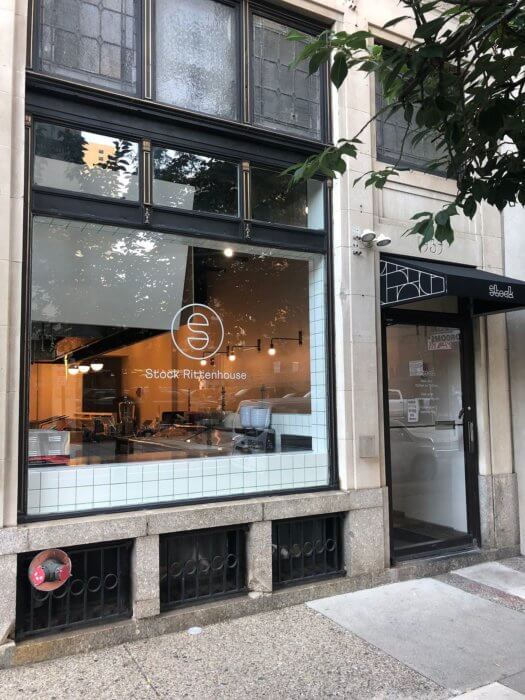
Akin also says there are ways to go right to the top to help show those in power just how important this industry is to the city.
“I think this is a big ask for people, but I also know people have a little more time on their hands than they use too, so calling congressmen and calling senators and saying ‘I care about restaurants, it’s where I celebrate milestones in my life and create memories, its important to our communities and tourism, and we don’t want to see them disappear—because that’s what we’re facing right now. The temperature amongst my colleagues is that we’re not going to make it without help, truly.”
To learn more information about the PRLA, visit prla.org and to learn more information about the IRC, visit saverestaurants.com



